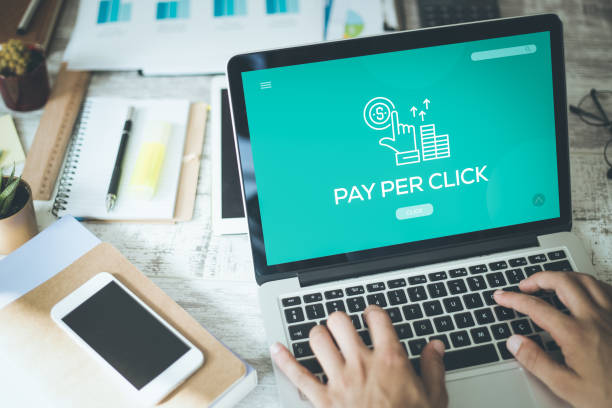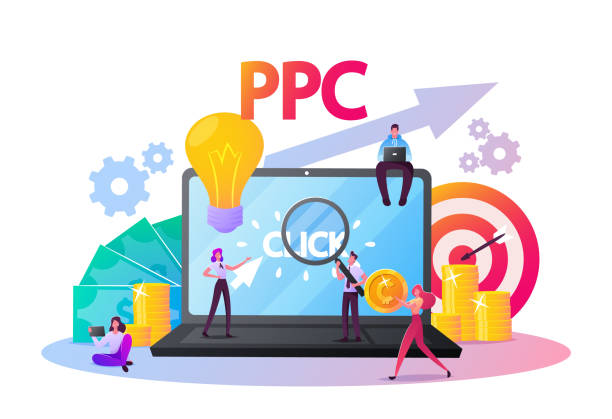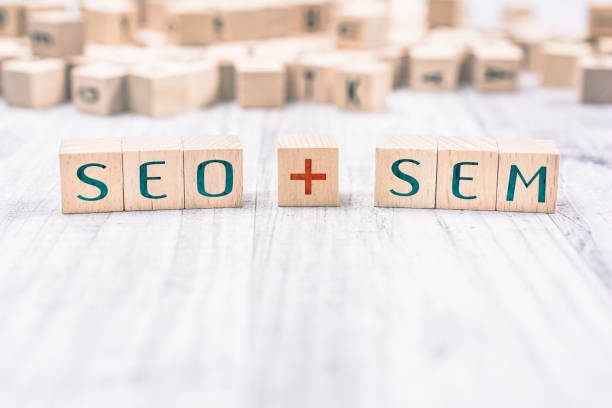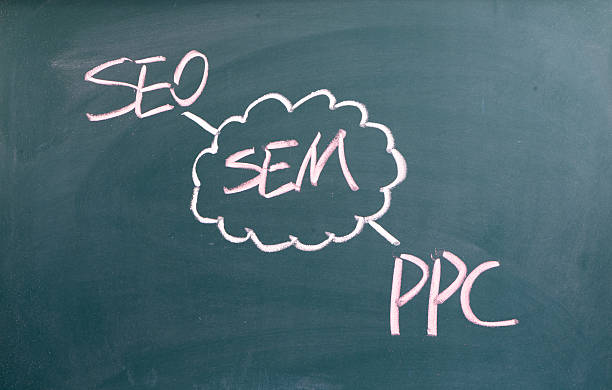Paid Search Vs. Organic Search: Difference Between Organic SEO Vs Paid
The Ultimate Guide: Organic Search vs Paid Search (SEO vs PPC)
Are you struggling to decide whether to invest in organic search (SEO) or paid search (PPC) for your digital marketing strategy?
Well, you're not alone. The debate between organic vs paid search has been raging for years, with both camps claiming their approach is superior.
But the truth is, they're not mutually exclusive - in fact, a well-rounded strategy often combines both organic and paid tactics.
In this comprehensive guide, we'll dive deep into the nitty-gritty details of organic search vs paid search.
We'll explore the key differences, advantages, and disadvantages of each, so you can make an informed decision on which approach (or combo) is right for your business goals.
Plus, we'll throw in some witty anecdotes and real-world examples to keep things entertaining. So grab a coffee, get comfy, and let's untangle this SEO vs PPC conundrum once and for all!

Why You Should Read This Article:
- Understand the core differences between organic and paid search marketing
- Learn the unique benefits and drawbacks of SEO vs PPC
- Get actionable tips on when to use organic search, paid search, or both
- Avoid common pitfalls that can derail your search marketing efforts
- Make smarter investments for higher returns on your marketing spend
Organic Search: The Slow and Steady Approach
What is Organic Search (SEO)?
Organic search, often referred to as SEO (search engine optimization), is all about optimizing your website and content to rank higher in the unpaid, "organic" listings on search engines like Google.
Unlike paid ads, you can't just throw money at SEO to instantly appear at the top.
Instead, it involves methodically improving technical elements of your site, creating high-quality content that resonates with your audience, earning authoritative backlinks, and making sure your pages are structured in a way that pleases search engine algorithms.
Basically, you're trying to prove to Google & co. that your website deserves to rank well for relevant searches.

How Does Organic Search Work?
I like to think of Google's organic search results as a massive, ever-changing pyramid ranking system.
At the top are the #1 ranking pages that have invested tons of time and effort into technical SEO, content creation, link building, and following Google's webmaster guidelines to a T.
As you descend down the ranks, you'll find websites that have done less optimization, created lower quality content, or have fallen out of Google's favor due to algorithm updates punishing shady SEO tactics.
The goal for any website is to steadily climb their way up those organic rankings through continuous improvement.

Key Benefits of Focusing on Organic Search Traffic
- Cost Effective: Outside of investing time/resources into SEO, you don't have to pay for each click like you do with paid ads. Those savings can really add up!
- Build Brand Credibility: Ranking high organically signals to customers that your brand is a credible, authoritative source on a topic.
- Longer Lasting Results: With paid ads, the traffic stops when you stop paying. Good SEO establishes an ongoing organic traffic stream.
- Insights into Customer Behavior: By analyzing organic search data, you can better understand what your audience is actively searching for.
Fun Anecdote: I once worked with a moving company that was able to rank #1 for "moving services Portland" just by blogging tons of super handy moving tips/checklists and making minor technical tweaks.
The organic traffic and leads that resulted paid for their SEO investment 10x over!

Paid Search: The "Shut Up and Take My Money" Approach
What is Paid Search (PPC)?
Paid search, also known as pay-per-click (PPC) advertising, is the process of paying for placement in the advertised/sponsored listings on a search engine results page.
The most common platforms are Google Ads and Microsoft Advertising (Bing Ads).
With paid search ads, you bid on relevant keywords and phrases that your target audience is searching for.
When someone enters one of those queries, your ad might get displayed at the very top or bottom of the results - but you only pay if they click on it.

How Does Paid Search Work?
For paid search, it's all about the ad auction.
Search engines take into account factors like your bid amount, advertisement quality/relevance, and expected click-through rate to determine:
- If your ad will be displayed
- What position it will appear in
- How much you'll pay per click
Unlike SEO where you're developing content to rank organically long-term, PPC allows you to strategically insert yourself at the very top of search results on demand.
It's a way to "buy" your way into premium digital real estate.

Major Advantages of Using Paid Search Ads
- Immediate Top Visibility: PPC puts your brand/products front and center, high in search results right away.
- Precise Targeting Ability: You can finely tune your paid targeting by keyword, location, time of day, and more.
- Complete Control and Flexibility: Need to pause a campaign, update ad copy, or change budgets? Just a few clicks away.
- Measurable Results: PPC platforms provide tons of data to easily measure ROI and optimize your paid campaigns.
- Complement Organic Efforts: While building SEO steam, paid ads can drive traffic until organic rankings improve.
Funny Story: My friend is an avid pay-per-click advertiser for his home services business.
But one time he accidentally set his geographic radius targeting to 3,000 miles...oops!
He was getting clicks (and having to pay) from people across the entire country. Always double check those PPC settings, folks!

The Great Debate: Organic Search vs Paid Search
At this point, you're hopefully beginning to understand the key distinctions between SEO and PPC in the organic search vs paid search debate.
On one hand, organic search optimization has compounding long-term benefits but takes consistent time/effort to see results.
On the other, paid search ads offer near-instant visibility at the top of search results - but you'll be stuck paying for that premium placement as long as you want those clicks.

When to Focus on Organic Search (SEO)
Generally, you'll want to heavily invest in an SEO/organic search strategy if:
- You have a long marketing runway and can be patient for results 6-12+ months out
- You're operating in a non-urgent, long-cycle sales environment
- Your customers tend to do a lot of research before buying
- You're targeting broad, informational keywords vs. just product/service searches
- You have the internal resources to develop high-quality content consistently
- Earning brand credibility/authority is extremely valuable for your business

When to Utilize More Paid Search (PPC)
In contrast, you may want to allocate more budget towards paid search campaigns when:
- You need leads/sales immediately and can't wait for organic SEO to kick in
- You're selling emergency/time-sensitive products or services
- Your marketing/sales cycles are short
- You want to advertise for very specific transactional keywords
- You require precise geographic, demographic or dayparting targeting capabilities
- You're able to closely track and measure PPC performance/ROI
Why the Best Approach is Often a Mix of Organic and Paid
While this guide has outlined the distinct differences between organic and paid search, the most effective, sustainable strategy for many businesses is to leverage BOTH SEO and PPC in harmony.
Let me explain...
By investing time/resources into building up your organic search presence through technical SEO, quality content, etc., you're developing a solid long-term foundation for "free" traffic from search.
However, that organic traffic stream takes months (or years) to fully cultivate.
That's where paid search comes in. You can use paid ads as a way to practically print money and drive consistent traffic/leads while waiting for your SEO efforts to bear fruit organically.
Then over time, as organic ranks and traffic increase, you can gradually scale back paid ads to reduce that ongoing cost.
But paid search should never completely replace SEO - that's like burning cash. After all, appearing in both the paid AND organic listings increases your overall visibility, click-through rates, and brand credibility.

How to Properly Balance Organic & Paid for Optimal Results
So what's the magic formula to find the right organic vs paid search equilibrium?
Unfortunately, there's no one-size-fits-all ratio that works for every business. It depends on factors like your:
- Industry and competition levels
- Available marketing budget
- Internal team resources/skills
- Product/service costs & profit margins
- Short vs. long-term goals
My general recommendation is to start by allocating 70% of your search marketing investment towards technical SEO and content production for organic search, while spending the other 30% on paid search campaigns

FAQ: Organic Search vs Paid Search
What are Organic Search Results?
Organic results are the unpaid, natural listings that appear in the main body of the search engine results page (SERP) when a user performs a search query.
They are determined by search engine algorithms based on relevance and quality signals.
How are Paid and Organic Search Different?
Paid search results are advertisements created and paid for by companies to appear at the top or bottom of search results.
Organic search results are the unpaid, naturally ranked listings that appear in the main body of the search engine results page, determined by search engine algorithms.
What's the Difference Between Organic?
The key difference between organic search results and paid search ads is that organic rankings are earned based on a website's content quality, technical SEO, and ability to satisfy user search queries.
Paid ads allow advertisers to buy prominent placement at the top of SERPs.
How Do Organic and Paid Relate to Digital Marketing?
Both organic search engine optimization (SEO) and paid search advertising (PPC) are core components of an effective digital marketing strategy.
SEO enhances visibility in organic rankings, while paid search provides immediate visibility through search ads.
What's the Difference Between Paid?
The main difference between paid search results and organic results is that paid listings are advertisements purchased by companies, whereas organic listings cannot be influenced by payments to search engines directly.
What's the Difference Between Paid and Organic Search?
Paid search provides immediate, guaranteed visibility at the top of SERPs through paid advertising campaigns.
Organic search requires consistent optimization efforts to gradually improve rankings in the main body of unpaid search results over time.
How Do Organic and Paid Search Work Together?
An integrated search marketing approach often combines organic SEO tactics to increase unpaid traffic over time, while simultaneously utilizing paid search ads to drive website traffic and visibility until organic rankings improve.
What's the Difference Between SEO and PPC?
SEO (search engine optimization) focuses on optimizing websites and content to rank higher in organic search results naturally.
PPC (pay-per-click) advertising allows marketers to pay to have their ads displayed prominently in sponsored search results.
What Is the Difference Between Organic Search?
Organic search refers to unpaid listings that search engines like Google rank based on relevance to a user's search query.
Paid search ads allow companies to pay for prominent ad placement at the top of SERPs for specific keywords.
How Are Organic Strategies Different for Google Search?
While the principles of technical SEO and content optimization apply, Google's search algorithms have specific ranking factors that SEO strategies must account for in order to perform well in organic results on Google.
What Are the Benefits of Focusing on Organic Traffic?
The main advantages of organic search traffic include: cost-effectiveness since you don't pay per click, building long-term sustainable traffic, establishing brand credibility/authority, and gaining insights into customer search behavior.
What Are the Key Benefits of Paid Search Marketing?
Benefits of paid search include: immediate visibility at the top of SERPs, precise audience targeting abilities, flexible ad controls, measurable performance data, and using ads to complement organic efforts while rankings improve.
Should I Focus on Organic or Paid Search?
There is no one-size-fits-all approach - the ideal organic vs paid search strategy depends on your specific goals, timelines, budget, search trends in your industry, and resource availability to execute each channel effectively.
What Are the Advantages of Organic Search Strategies?
Key advantages of organic search engine optimization include: cost-effective traffic, building sustainable long-term traffic sources, establishing brand authority/trust, aligning with customer search intent, and understanding audience search behavior.
What Are the Main Advantages of Organic Search Over Paid?
Organic search has advantages over paid in areas like: not having to pay per click, traffic sustaining long-term instead of stopping when payments cease, ability to build more credible brands/authority, and deeper audience insights.
How Does Paid Search vs Organic Differ?
Paid search provides immediate top-of-SERP visibility but requires continual ad spend. Organic search takes more time/effort but delivers cost-effective traffic once rankings are achieved, making it more sustainable long-term.





